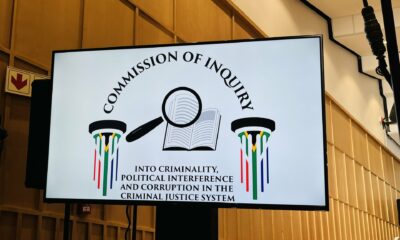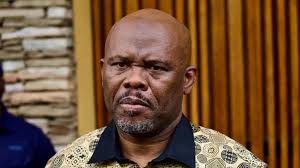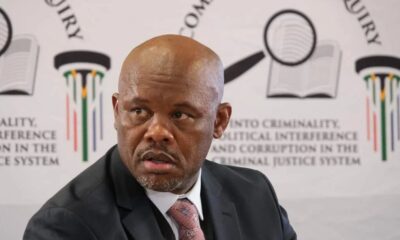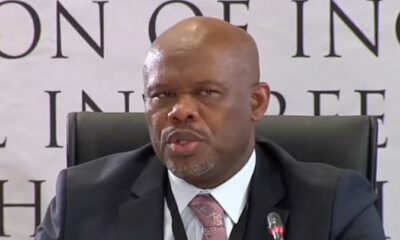News
‘We’re Tired of Being Shocked’: SAPS Collapse Leaves Poor Communities Exposed
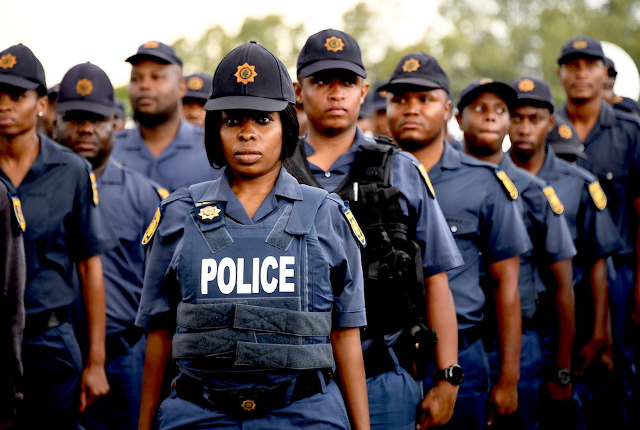
‘Commissions Come and Go’: SAPS Crisis Now a Way of Life for Millions
South Africans aren’t shocked by police corruption anymore and that might be the country’s biggest danger.
Only 22% of citizens still trust the South African Police Service, according to the Human Sciences Research Council. That’s the lowest level of confidence in SAPS since 1998, and it shows in how communities now navigate safety, crime, and justice: with resignation rather than expectation.
“Dysfunction has become part of daily life”
Professor Kholofelo Rakubu, a criminologist at Tshwane University of Technology, says the collapse of credibility in policing is no longer a scandal, it’s a routine.
“It’s no longer shocking when an officer is arrested for corruption or when a suspect walks free because of a missing docket. It has become part of how people expect the system to function and that is extremely dangerous,” she told IOL.
Complaints that once caused national outrage, bribery at roadblocks, dockets vanishing, survivors of gender-based violence waiting months for calls are now met with weary acceptance.
When justice stops, insecurity spreads
Crimes go unreported because people believe it won’t lead anywhere. Witnesses fear retaliation more than they trust protection. Community-policing forums, once central to crime prevention, have gone quiet.
And the impact, Rakubu says, is not evenly felt.
“In wealthier suburbs, residents can hire private security. But in townships and rural areas, people have nowhere to turn. That vacuum is filled by criminal networks, extortion groups or vigilante structures.”
Where the state retreats, syndicates step in.
The commissions expose it, the country shrugs
From the Madlanga Commission to Parliament’s Ad Hoc Committee, the public has heard wave after wave of testimony about SAPS corruption, bribery, internal sabotage and captured intelligence units.
Names like Senzo Mchunu and Nhlanhla Mkhwanazi resurface in headlines, yet little changes.
Rakubu is blunt:
“Commissions come and go, they expose the rot, but nothing changes. South Africans are tired of hearing about accountability that never arrives.”
Corruption fatigue not apathy
Analysts say the muted national response isn’t acceptance, it’s emotional burnout. Years of inquiries and empty consequences have exhausted citizens.
President Ramaphosa’s anti-corruption drive and the Investigating Directorate Against Corruption signal intent, but underfunded institutions can’t deliver impact. Enforcement without consequences breeds deeper mistrust.
“We cannot fight corruption with good speeches and weak institutions,” Rakubu warned. “Until people are prosecuted, not suspended, integrity will remain optional.”
Communities now protect themselves
Civil groups echo the same reality. #NotInMyName leader Siyabulela Jentile says South Africans are living inside “a long betrayal.”
“South Africans are not numb by choice; we are fatigued by repetition. Each revelation of corruption lands on ground already scorched by previous scandals.”
Townships and rural communities are increasingly turning to neighbourhood watch groups and faith-based patrols instead of calling SAPS.
Residents say:
“They don’t come when you need them. And when they do, the case disappears.”
Not trusting SAPS isn’t just an attitude, it’s a risk
Jentile says police dysfunction doesn’t only fail to fight crime, it creates space for it to thrive.
“A compromised police service incubates criminality. Organised syndicates, drug dealers and corrupt officers operate with impunity. Cases of gender-based violence go uninvestigated, children disappear without trace, and communities resort to vigilante justice.”
The danger of ‘normalising the broken’
Rakubu says the fatal turning point comes when people stop reacting.
“When citizens start accepting dysfunction as normal, democracy begins to die quietly. The tragedy is not only that corruption exists, but that it is no longer shocking.”
Until the findings of the Madlanga Commission and Ad Hoc Committee are enforced with prosecutions, not paperwork, experts warn the country will continue to sink into lawlessness framed as survival.
So where to from here?
This is not a debate about policing alone, it’s about the future of public trust. If South Africans stop believing justice is possible, the law will live only in policy documents, not in people’s lives.
And right now, in poor and working-class communities, that future has already arrived.
{Source: IOL}
Follow Joburg ETC on Facebook, Twitter , TikTok and Instagram
For more News in Johannesburg, visit joburgetc.com

